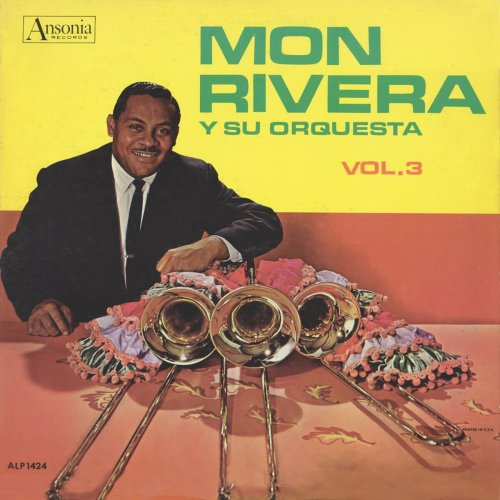Glenn Gould - Haydn: The Six Last Piano Sonatas - Gould Remastered (2015) [Hi-Res]
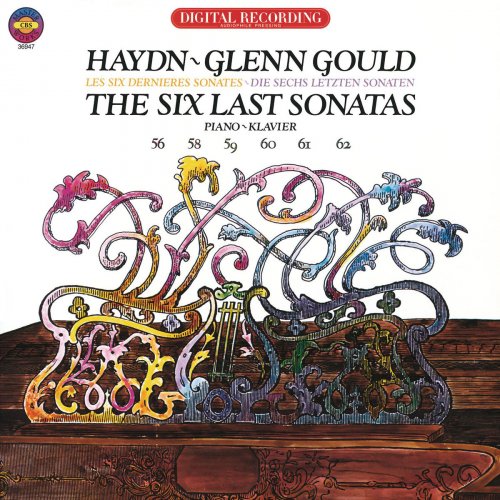
Artist: Glenn Gould
Title: Haydn: The Six Last Piano Sonatas - Gould Remastered
Year Of Release: 2015
Label: Sony Classical
Genre: Classical, Piano
Quality: flac 24bits - 44.1kHz
Total Time: 01:20:27
Total Size: 686 mb
WebSite: Album Preview
TracklistTitle: Haydn: The Six Last Piano Sonatas - Gould Remastered
Year Of Release: 2015
Label: Sony Classical
Genre: Classical, Piano
Quality: flac 24bits - 44.1kHz
Total Time: 01:20:27
Total Size: 686 mb
WebSite: Album Preview
---------
CD1
01. Sonata in D Major, Hob. XVI:42: I. Andante con espressione (Remastered)
02. Sonata in D Major, Hob. XVI:42: II. Vivace assai (Remastered)
03. Sonata in C Major, Hob. XVI:48: I. Andante con espressione (Remastered)
04. Sonata in C Major, Hob. XVI:48: II. Rondo-Presto (Remastered)
05. Sonata in E-Flat Major, Hob. XVI:49: I. Allegro (Remastered)
06. Sonata in E-Flat Major, Hob. XVI:49: II. Adagio e cantabile (Remastered)
07. Sonata in E-Flat Major, Hob. XVI:49: III. Finale-Tempo di Minuet (Remastered)
CD2
01. Sonata in C Major, Hob. XVI:50: I. Allegro (Remastered)
02. Sonata in C Major, Hob. XVI:50: II. Adagio (Remastered)
03. Sonata in C Major, Hob. XVI:50: III. Allegro molto (Remastered)
04. Sonata in D Major, Hob. XVI:51: I. Andante (Remastered)
05. Sonata in D Major, Hob. XVI:51: II. Finale-Presto (Remastered)
06. Sonata in E-Flat Major, Hob. XVI:52: I. Allegro (Remastered)
07. Sonata in E-Flat Major, Hob. XVI:52: II. Adagio (Remastered)
08. Sonata in E-Flat Major, Hob. XVI:52: III. Finale-Presto (Remastered)
The most renowned Canadian classical performer of the 20th century, pianist Glenn Gould remains one of the most fascinating and celebrated figures in all of music, the archetypal riddle wrapped inside an enigma wrapped inside a conundrum. A former child prodigy, his piano artistry was unparalleled, yet he often received less recognition as a virtuoso than as a troubled eccentric; a disconnected recluse notorious for such odd habits as wearing a wool topcoat in the dog days of summer, Gould was a sight to behold even in live performances - seated on a low chair and slumped over the keyboard, humming (sometimes singing) audibly to himself as he played, all the while conducting with his free hand. Gould's impossible technique and singular behavior were so hotly debated by scholars that often it seemed that his actual skills were negligible; perhaps it's not surprising that at the age of just 31, he left public performance behind forever, turning instead to broadcasting and writing, as well as an almost obsessive exploration of modern recording technology.
Gould was born in Toronto, Ontario, on September 25, 1932, the product of a musical family that included his father, an amateur violinist, and his mother, a pianist and organist; Edvard Grieg was a distant relation as well. Even at the age of three, Gould evidenced prodigious skills - in addition to his absolute pitch, he was already able to read staff notation, and just two years later he authored his first compositions. At the age of ten, he began lessons at the Royal Conservatory of Music in Toronto, and in 1944 took home the piano trophy from the annual Kiwanis Music Festival, the only such contest he ever entered in response to his strong opposition to the idea of competitive performance. In 1945, Gould passed his associateship examination as a solo performer at the Royal Conservatory; that same year he offered his first public performance on the organ, a concert reviewed under the headline "Boy, Age 12, Shows Genius as Organist."
At the age of 14, Gould made his debut as soloist at a Royal Conservatory orchestral performance of Beethoven's Fourth Piano Concerto. His first public recital was in 1947, and featured works by Scarlatti, Beethoven, Chopin, and Liszt; his debut network radio recital followed over CBC airwaves in 1950, and marked the beginning of his long relationship with broadcasting and recording. In early 1955, Gould made his New York debut, and within hours signed with Columbia's Masterworks imprint. His first recording, a performance of Bach's Goldberg Variations, became an instant best-seller, and he went on to make over 60 more recordings for the label in the years to follow. In 1957, Gould toured Europe, and at the peak of Cold War tensions he became the first North American ever to perform in the Soviet Union. His concert career continued to great success during the early '60s, but in Los Angeles on April 10, 1964 - with no advance warning, and without fanfare - he delivered his final public performance.
Gould's decision to retire from live performances was in part a result of his desire to focus more of his energies on writing, broadcasting, composing, and conducting; his first major new project was a "sound documentary" called The Idea of North, a philosophical musing on the meaning of northern existence. Keeping in contact with the outside world primarily over the telephone, Gould was often out of the spotlight for long periods of time, but in 1981 he broke with his long tradition of not re-recording material to return to the work with which he remained most closely identified, the Goldberg Variations; his decision was motivated in large part by the vast improvements in technology during the quarter century that separated the two recordings. Months later, he formed a Toronto chamber orchestra, serving as their conductor on a recording of Wagner's Siegfried Idyll; it was his last major work - Gould died on October 4, 1982, after suffering a stroke. He was just 50 years old.
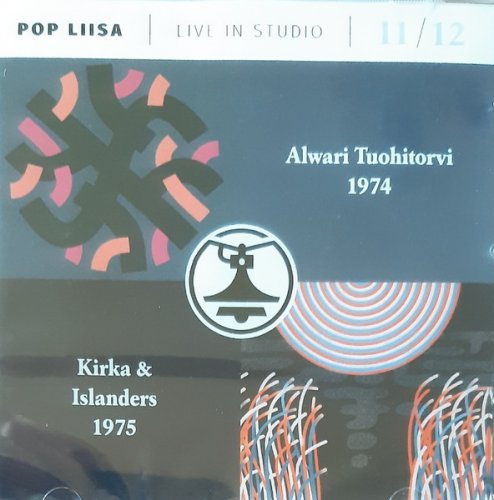
![The Mood Mosaic & Fausto Papetti - Bésame (Y Haz De Mi Cuerpo Tu Reino) (2026) [Hi-Res] The Mood Mosaic & Fausto Papetti - Bésame (Y Haz De Mi Cuerpo Tu Reino) (2026) [Hi-Res]](https://www.dibpic.com/uploads/posts/2026-02/1772125285_cover.jpg)
![Dave Stapleton - Quiet Fire (2026) [Hi-Res] Dave Stapleton - Quiet Fire (2026) [Hi-Res]](https://www.dibpic.com/uploads/posts/2026-02/1772036051_v5l0f2qh1r2cb_600.jpg)
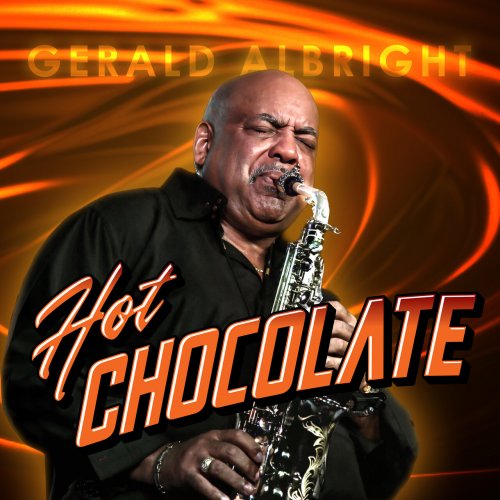
![The Voros Collective - Intercontinental Man (2026) [Hi-Res] The Voros Collective - Intercontinental Man (2026) [Hi-Res]](https://www.dibpic.com/uploads/posts/2026-03/1772344932_cover.jpg)
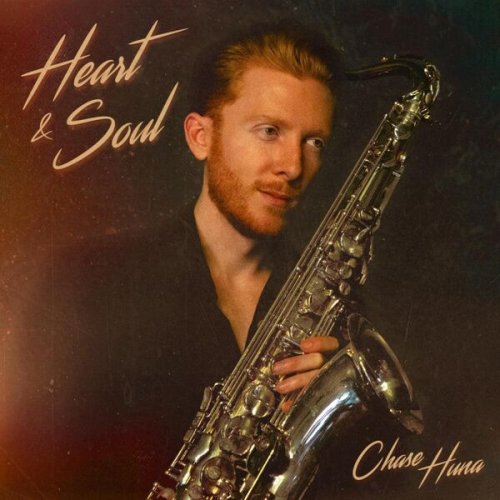
![Mark De Clive-Lowe, Andrea Lombardini and Tommaso Cappellato - Dreamweavers II (2026) [Hi-Res] Mark De Clive-Lowe, Andrea Lombardini and Tommaso Cappellato - Dreamweavers II (2026) [Hi-Res]](https://www.dibpic.com/uploads/posts/2026-02/1772112550_tl3tb7yl8u13z_600.jpg)
![Zenekar - Swirls (2026) [Hi-Res] Zenekar - Swirls (2026) [Hi-Res]](https://img.israbox.com/img/2026-02/25/t028ousw4otuz57efsjkzgr6u.jpg)
